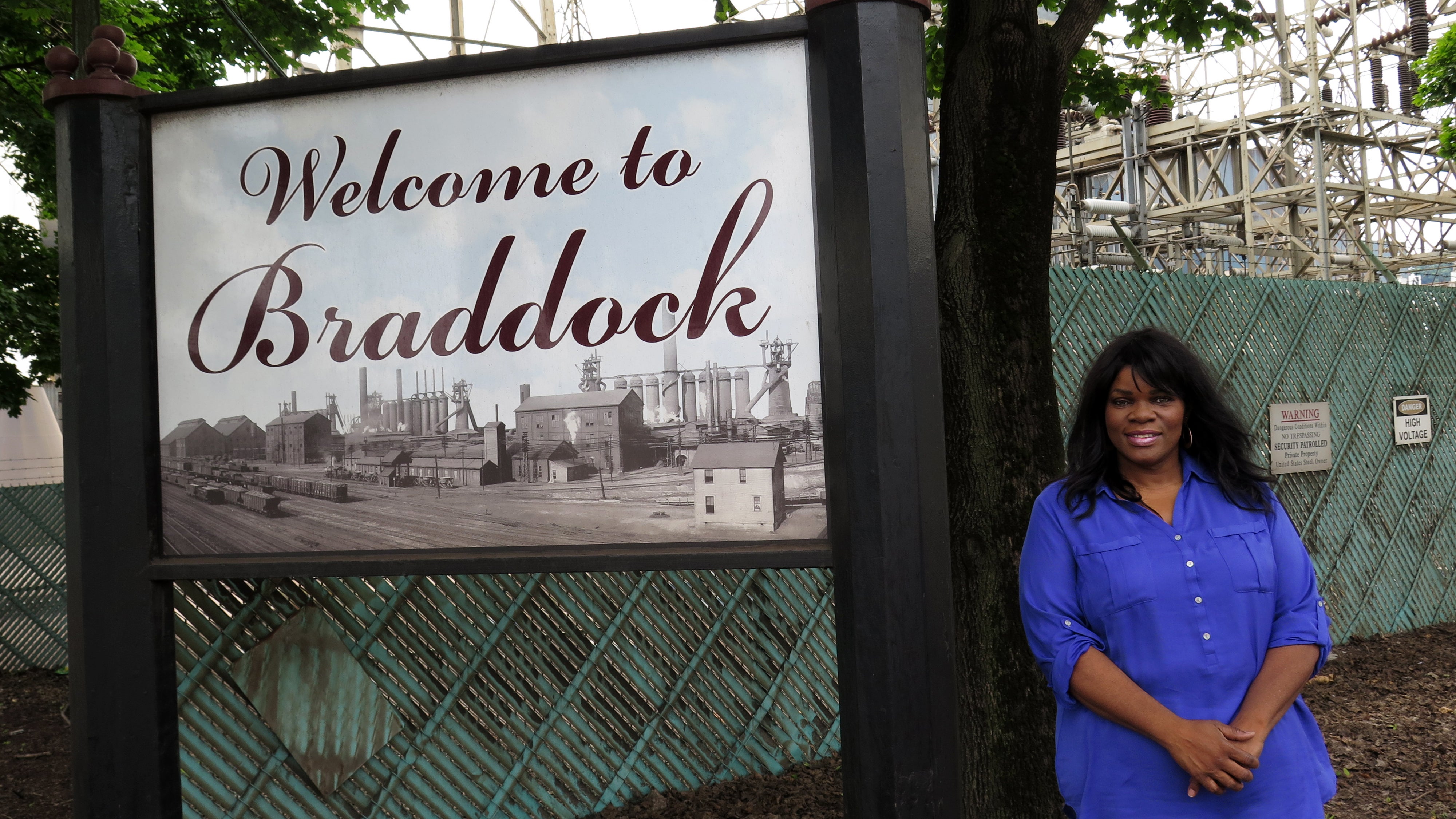Property reassessments for tax bills inspire big drama in Pennsylvania
Listen
Braddock Borough Council President Tina Doose. (Irina Zhorov/WESA)
Many states conduct regular property reassessments without much to do. But in Pennsylvania reassessments can cause upheaval.
Property taxes are considered a relatively stable, easy-to-collect tax. In many states government officials conduct regular property reassessments, which help calculate accurate tax bills, without much to do. Not so in Pennsylvania, where reassessments can cause upheaval and dramatic political wrestling matches.
For example, in 2009, the Pennsylvania Supreme Court required Allegheny County to reassess all property. In 2012, as the new property values rolled out, local news reported that the newly elected chief executive for the county was “throwing out the new property reassessments.”
County Executive, Rich Fitzgerald, refused to enforce the mandated reassessment, something he stands by today. In Somerset County, an attempt to reassess coal reserves has met staunch opposition because county officials fear it could lead to the loss of what coal jobs remain. Even Philadelphia, which recently concluded a major voluntary reassessment, had to manage considerable outcry.
“The analogy I like to use is it’s like setting a broken leg,” said Kevin Gillen, an economist with the Fels Institute of Government at University of Pennsylvania. “It was painful to do because it was such a severe dislocation of the property tax burden throughout all these different neighborhoods [in Philadelphia] but hopefully in the long run it made us much better off.”
Pennsylvania’s rules in minority nationwide
Excluding Philadelphia, most Pennsylvania municipalities rely on property taxes as the main source of revenue for government and school districts. Despite this, officials say the Commonwealth’s property reassessment law is not user-friendly. Pennsylvania’s uniformity clause mandates all properties — commercial and residential — be taxed the same rate. At least 21 states do not do this and, Gillen said, the Commonwealth’s insistence on it impedes economic development.
Ira Weiss, who served as lead counsel in the Allegheny County case that resulted in the recent mass reassessment, said another issue is Pennsylvania is in a small minority of states without mandatory reassessment provisions to account for market changes. That helped Pennsylvania earn a grade of ‘F’ from the Council on State Taxation in ‘standardized procedures’ in its property tax administration practices. Delaware and New Jersey also lack specified reassessment schedules.
So while neighboring states like Ohio and Maryland regularly reassess all properties in the state, the dates for the most recent mass reassessments in Pennsylvania counties span decades. “Consequently there’s simply no relationship between market value and assessment at that point. And it’s a huge problem because it drives up local taxes, it creates tremendous lack of uniformity,” said Weiss.
The longer a county goes without reassessment, the less accurate people’s tax bills. Larry Eichel, who runs the Philadelphia Research Initiative at Pew Charitable Trusts, said accuracy is a matter of fairness. “Fairness is sort of inherently a good thing, but it’s also a good thing if you want more people to pay the tax and respect the government,” he said.
Without reassessments, it’s possible for poorer over-assessed neighborhood residents to overpay and under-assessed property owners in wealthier neighborhoods to underpay. And without rules requiring regular reassessments, that can go on for decades. “In the absence of the rules, there is a tendency not to do it because it’s going to upset somebody,” Eichel said.
Remember Fitzgerald refusing to enforce reassessed values in Allegheny County? Politically, that made sense. For one, reassessments are incredibly expensive. Allegheny County’s latest reassessment cost about $13 million and its previous one about double that. Many counties can’t recover that cost even if they allow property tax revenues to go up, in itself an unpopular move. In addition, some constituents see their property tax bills rise.
Infrequent reassessments bring unpleasant surprises
Standing in front of the imposing Edgar Thomson steel plant in Braddock, Braddock Borough Council President Tina Doose said reassessment can bring bad news of a different kind. Historically, the U.S. Steel plant was the reason Braddock existed, but the plant, and the town, have shed their heyday grandeur. The latest Allegheny County reassessment dealt a further blow to a town already struggling to adjust to life after steel. Doose said before the reassessment, U.S. Steel constituted 10 percent of the borough’s annual budget. Now, according to Doose, it’s 2 percent. “That’s a big decrease,” she said.
Fearing such losses, counties can just choose to not reassess until forced by the courts. But if counties reassessed more regularly it’s possible the revenue loss would have been more gradual and officials could have planned better.
Solutions
Gillen, the economist, wants to see more flexibility with the uniformity clause. He said some states use their laxer interpretation of a uniformity clause to shift the tax burden from homeowners to commercial properties. Additionally, he said more flexibility would make it easier to spur development in low income areas where extended tax abatements could be the difference between a project happening and not.
Weiss, the lawyer, said he wants to see uniformity of a different kind. “I think what should be done legislatively is this should become a state function, the reevaluation process should be taken out of local county politics and done at the state level,” he said.
That would be a big change for Pennsylvania, but so far the legislature isn’t biting. It could be because the state doesn’t get to keep any of the property tax money, leaving little incentive to pass a major overhaul. But Fitzgerald, who risked jail time when he refused to accept new property values, said it’s worth considering. “It’s upsetting to people, it’s not done in a fair and orderly way, it’s done kind of arbitrarily.”
WHYY is your source for fact-based, in-depth journalism and information. As a nonprofit organization, we rely on financial support from readers like you. Please give today.


